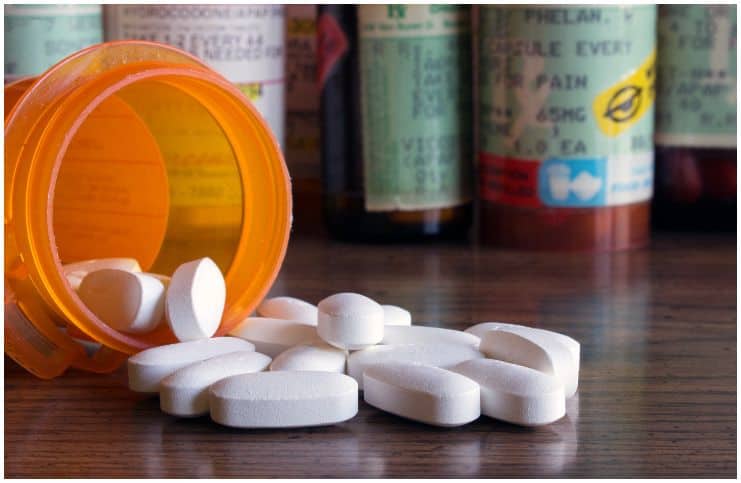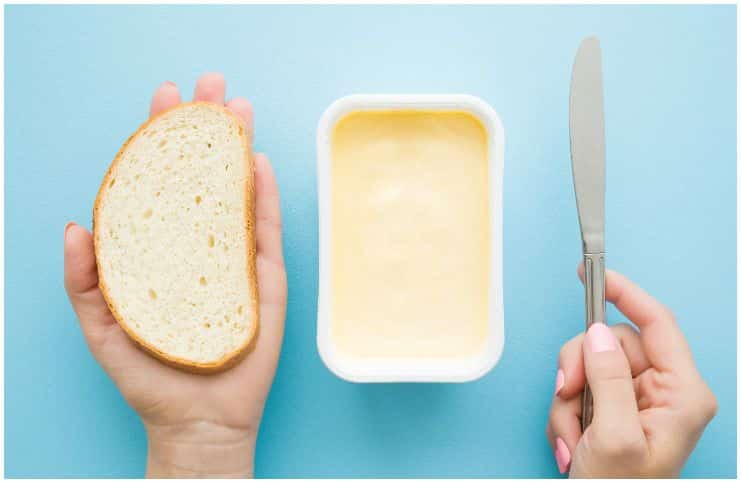Many people experience weight gain after different types of surgeries, such as:
- gallbladder surgery – this procedure provides an individual permanent relief from suffering from gallstones;
- gastric sleeve surgery – it removes about 80 percent of the stomach;
- gastric bypass surgery – it changes how your small intestine and stomach handle the food you eat;
- thyroid surgery – it removes a portion or all of the thyroid gland;
- shoulder surgery – it is a surgical procedure which can restore complete power and movement to your shoulder;
- hernia surgery – it refers to a surgical procedure for the correction of a hernia, which is a hole or weakness in the abdominal muscle wall and abdominal contents protrude causing a bulge.
Here are a few reasons for weight gain after surgery:
Stress
Physiological stress responses can directly influence wound healing processes. If this lasts for a prolonged period of time, it develops into chronic stress which may suppress your immune system, making you more exposed to different types of infections.
It can also lead to magnified discomfort, lengthened hospital stays, and slows return to normal activities. All of this may lead to weight gain.
There is also the emotional stress which can lead to anxiety and depression (one in five patients reports depression after surgery).
Emotional stress can be credited to numerous physical factors after an operation, including reactions to discomfort and pain, narcotic painkillers and anesthesia, or other undetermined biological processes.
Retaining fluids after surgery
It is very common to gain weight from the fluids after surgery due to the fluids from the IV. Though water retention frequently happens in the lower extremities, fluid may accumulate in the interstitial spaces in other parts of the body because the kidneys cannot eliminate fluids fast enough and the fluids back up into the tissues.
However, swelling of the tissues is more common in patients with heart, kidney, and liver disease.
Pain medications after surgery
Doctors commonly rely on intravenous medications to relieve pain during and after the surgery. These medications can severely affect your metabolism. Some can also make you gain weight.
Occasionally, it is not the medication itself causing weight gain but an adverse effect from it. Nevertheless, if a medication is causing weight gain, don’t stop taking it without consulting your doctor.
Nutrition
Some foods, particularly foods with high fat, make you feel better. However, on the ling run, having a diet high in fat (especially trans fats) leads to weight gain.
Metabolic slowdown
The brain and various glands (especially the thyroid) slows the metabolism to divert energy to the healing of the parts injured during the surgery.
If you don’t consume enough foods or eat erratically, your body switches into starvation mode and your metabolism slows down, making it harder to lose weight.
Too much sitting
Most operations require a recovery period, during which you slowly build up the capacity to perform your normal activities. Practicing any type of physical exercise after surgery depends on what type of surgery you have undergone and your doctor.
Note – regarding the physical exercise routines you did prior to surgery, some shouldn’t be done until any stitches and drains are removed.
Ways to avoid gaining too much weight:
Do not eat processed and junk foods
In many observational studies, eating processed and junk foods have been strongly associated with weight gain. The intake of junk foods can also cause learning and memory problems.
Avoid vegetable oils and margarine
The most used types of vegetable oils include – soybean, rapeseed (canola oil), sunflower, corn, peanut, and safflower. These vegetable oils contain very large amounts of Omega-6 polyunsaturated fatty acids, that have adverse effects when consumed in excess.
Though our bodies need some fats for optimal health, excessive consumption may slow the rate at which the body burns fat and increase appetite, causing weight gain.
Avoid foods high in saturated fat
Foods high in saturated fats and cholesterol (such as meats, dairy products, and eggs) can cause weight gain and leave you feeling like a couch potato.
These fatty foods can also cause acid reflux, gas, and heartburn, and long-term adverse effects such as an increased risk of cardiovascular disease, type 2 diabetes, and colon cancer.
Eat more foods high in fiber
Why is dietary fiber good for weight loss? For starters, it fills you up.
By filling you up for fewer calories and slowing the rate at which you digest the foods, dietary fiber will keep you satiated longer, which in the long run can considerably be beneficial with weight loss efforts.
Note – all vegetables, fruits, legumes, herbs, nuts, and seeds have fiber, but it’s mostly concentrated in the seeds, skin, and membranes. These foods also have many essential minerals, vitamins, and plant nutrients that are hastening your healing after surgery.
Lower salt consumption
Salt (sodium) absorbs water and causes water retention.
Massage
According to a 2010 study published in the Journal of the European Academy of Dermatology and Venereology, lymphatic drainage massage helped to slightly decrease the thickness of fat under the skin.
Moreover, massage has been shown to improve the supply of nutrition to the muscles and circulation.
Take diuretics
Take a prescription medication to remove excess fluid if needed. Diuretics, better known as water pills, are drugs designed to increase the amount of salt and water expelled from the body as urine.
Note – there are some herbs that help in this situation, such as – dandelion, rosemary, lavender, and cypress.
Acupuncture
Acupuncture is a traditional Chinese medicine method that increases metabolic function and promotes the consumption of body fat, thus, resulting in a faster and healthier weight loss.
Sleep
Sleep deprivation (less than seven hours of sleep per night) can sabotage your waistline and your health.
References https://www.ncbi.nlm.nih.gov/pubmed/18392907 https://www.ncbi.nlm.nih.gov/pmc/articles/PMC2851125/ https://www.hss.edu/newsroom_managing-weight-after-replacement-surgery.asp










